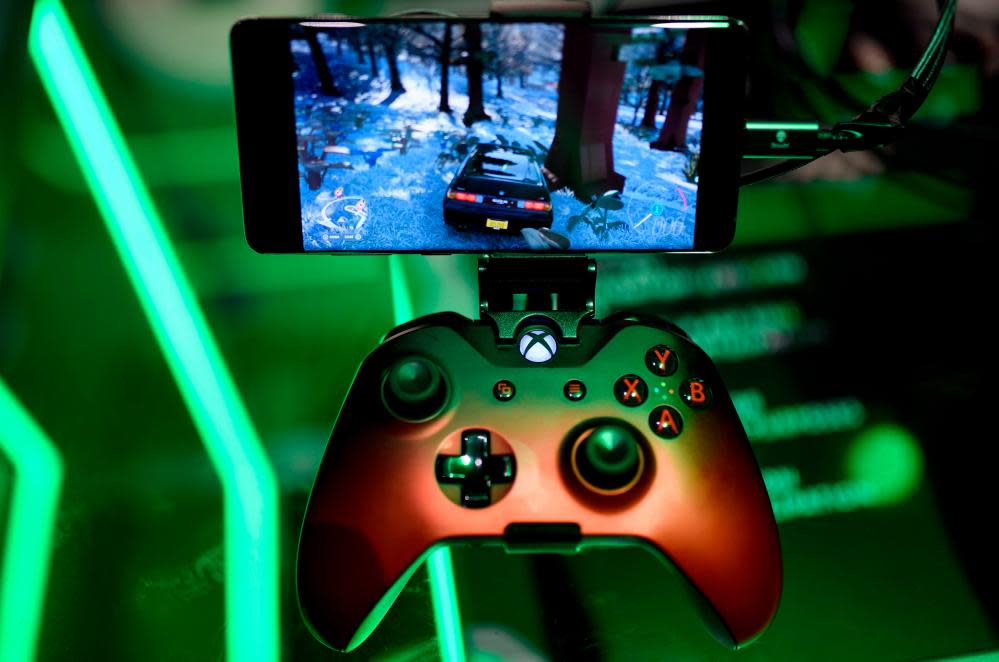'Video game planes emit real carbon': why gaming is not merely guilt-free escapism

There’s a woman in my social media feed who has spent the past week flying around the world in an Airbus A320. Remember travel? The degree of enviousness with which I look at her photos of skylines and mountains is well past being impolite.
She’s not really travelling, of course. She’s playing Microsoft Flight Simulator, the latest video game to capture the public’s imagination as a kind of Covid-19 era balm. This is a game that uses Bing maps satellite data to create a one-to-one scale replica of the entire planet, ready for players to explore now that the pleasures of physical travel have been temporarily relinquished by most of us.
Related: Swords, sand and razor-sharp insults: The Secret of Monkey Island at 30
Like Animal Crossing before it, which allowed a newly locked-down world to escape to an idyllic, pleasantly sociable tropical island, Flight Simulator is the perfect game for the moment. Video games have seemed to somehow float above the trials of 2020, and as one of the few creative industries still able to continue to make stuff in a Covid-19 world, things might seem sunny for both the artform and the industry.
As Trent Kusters, co-founder and director of Melbourne game development studio League of Geeks, told me: “It’s a strange industry to be in, where we’re so intrinsically involved with this crisis, but at the same time, doing well.”
Kusters is thinking of Game Connect Asia Pacific (GCAP), a games industry event that he’s speaking at as part of the annual Melbourne International Games Week (MIGW) this week. MIGW would usually draw tens of thousands of in-person attendees to the state, but this year, like so many major events, it’s entirely online.
“Our studio has actually been doing really well throughout this period, and there’s a lot of guilt that’s associated with that. We’ve seen the revenue for our first game, Armello, reach as high as a 50% increase, we’ve hired 20 people in the last year, and half of those have joined since we’ve been working from home. At the same time, as [Covid-19] started, 10 or more of my close friends immediately lost their jobs, or became at risk of losing their homes.”
Grace Bruxner, a Melbourne game developer behind the Frog Detective series and another GCAP speaker (full disclosure: I have composed music for two of her games), has found a different lockdown use for games. She now streams online using Twitch – unconventionally, as the stream I watched began with her sharing a Google search to find a “stream beginning shortly” holding card – and not to build an audience or get rich, but to simply be sociable in a way 2020 hasn’t allowed.
“Now that no one can go outside, it’s rare that you have a chance to interact with people that you’re not close to,” she says. “We’re just starved for social interaction at the moment, and [Twitch] is just another way for me to connect with other people in a less formal setting.”
When someone sits down to play Microsoft Flight Simulator, they’re still emitting carbon even though they’re at home
Ben Abraham, lecturer, University of Technology Sydney
There’s a bigger story here, too – one of video games being both a medium uniquely poised to thrive in 2020, and also being intrinsically part of the rolling crisis. At their best, video games can seem like a radical relief from this world. But they’re deeply implicated in the problems we collectively face, too.
Take the climate crisis. It might seem that, in the form of Flight Simulator amid a stay-at-home pandemic, we’ve finally discovered an eco-friendly way to escape. The virtual Airbus A320 even has “unbeatable fuel efficiency” written on its fuselage. But before you get too hopeful, consider that Flight Simulator’s virtual planet is around two petabytes worth of data, which players stream during play sessions (PC World reported around 2GB of streamed data for a few days of play).
That steady stream of data transfer equals carbon emissions, like Netflix or other consumer electronics, but the carbon footprint of making, manufacturing, buying and playing video games isn’t something many players think about.
“It’s invisible to us,” says Ben Abraham, a lecturer in the school of communication at the University of Technology Sydney.
“When someone sits down to play Microsoft Flight Simulator, they’re still emitting carbon even though they’re at home, mostly through data centres and their home’s electricity.”
Abraham’s central point is a striking one: “Video game planes emit real carbon.” It’s a thought that backs up a larger set of complicated questions. In January, Abraham asked game developers to tell him about their carbon emissions (Abraham’s survey is still open). One studio reported an annual electricity use that Abraham estimates is on par with that of around 80 family households.
Related: PlayStation at 25: it put video games at the centre of life
Next month, hotly awaited new Sony and Microsoft game consoles will be released. They’re already selling out pre-orders. New machines mean new games, new ways of escaping lockdown, new ways of being sociable – as well as new emissions, and newly mined minerals and resources for cutting-edge tech.
“In its current shape, the video games industry is not sustainable,” says Abraham. “Realistically, it would need to look like a games industry willing to do more with less. It would need to give up on the idea of hardware generations, or at least frequent ones.”
For many, video games have provided an essential comfort in impossible times, and at least one healthy creative industry for the future. These rays of hope don’t resolve bigger issues, though. “If we don’t change things now,” warns Abraham, “change will be forced on us.”


